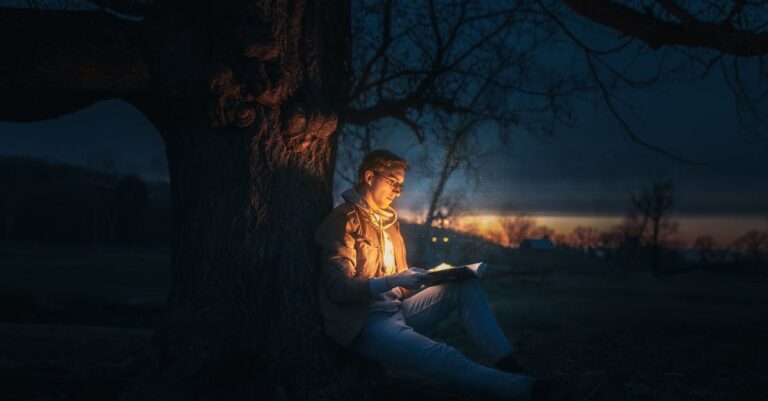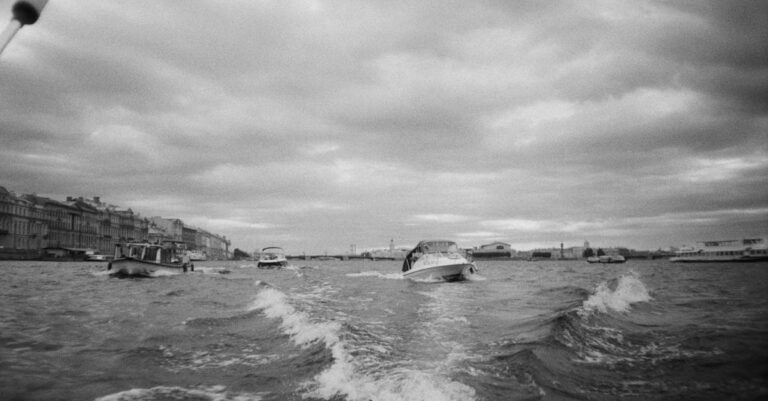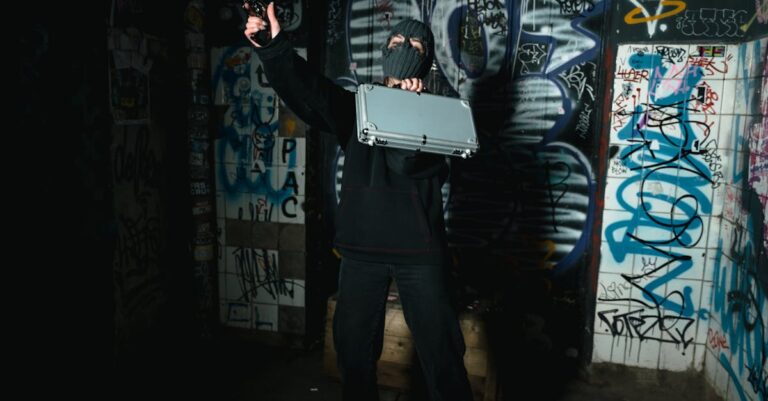Clara stepped off the train at Seabrook Station, her boots crunching on gravel as the scent of salt and diesel hung heavy in the air. The town had not changed—same crooked storefronts, same rusted fishing boats bobbing in the harbor—but she felt the shift in her bones, a quiet ache she couldn’t name. She clutched her duffel bag tighter, its straps digging into her shoulder, and walked toward the edge of the platform where a man stood, his back to her, staring at the waves. He didn’t turn when she approached.
“You’re late,” he said, his voice rougher than she remembered, like gravel underfoot.
She stopped. The wind tugged at her sleeves, and she inhaled the briny air, sharp and familiar. “I had to wait for the train.” Her words sounded hollow, even to her own ears.
He turned then, his face half-shadowed by the late afternoon sun. Eli. His hair was darker now, streaked with gray at the temples, and his jeans were frayed at the knees. He looked like a man who’d spent too long in the elements, but his eyes—those dark, stormy eyes—still held the same quiet intensity that had haunted her dreams for years.
“You could’ve taken the ferry,” he said, stepping closer. The scent of his cologne was gone, replaced by something earthier, like rain on concrete.
“I didn’t want to risk it.” She met his gaze, willing herself to stay steady. “I heard you were back.”
He exhaled sharply, a sound that felt like a confession. “I never left.”
The words hung between them, heavy as the tide. Clara looked past him to the water, where gulls circled in lazy patterns. The harbor was quieter than she remembered, the usual clamor of nets and engines subdued. It felt like a town holding its breath.
“You’re staying?” Eli asked, his voice softer now, almost hesitant.
She didn’t answer immediately. The question felt like a trap, a test she wasn’t sure she wanted to pass. She thought of the city, the noise and the neon lights, the way people moved like shadows through the streets. She thought of the letter she’d left on his doorstep years ago, the one he’d never responded to.
“I don’t know,” she said finally. “I came back for my mother’s things. The house is empty now.”
Eli’s expression darkened, but he didn’t ask the question she knew was coming. Instead, he turned toward the road, his boots scuffing the gravel. “Come on,” he said. “I’ll show you where it is.”
She followed him through the town, past the diner with its flickering neon sign and the bookstore that had once been her favorite place to hide. The air smelled of fried dough and old paper, and the sun dipped lower, casting long shadows across the pavement. When they reached the edge of the woods, Eli stopped and pointed to a weathered house perched on the cliffs.
“That’s it,” he said. “The last one on the road.”
Clara stared at it, her chest tightening. The roof sagged slightly, and the windows were clouded with dust. It looked like a place forgotten by time, but she could still see the cracks in the walls, the way the paint peeled along the eaves. It was exactly as she’d left it.
“You didn’t have to come with me,” she said, her voice barely above a whisper.
Eli shrugged, his gaze fixed on the house. “I wanted to.”
She didn’t know if he meant the house or something else. The wind picked up, carrying the scent of seaweed and salt, and for a moment, it felt like they were back in the days before everything fell apart. Before the fights, the silence, the way he’d walked away without looking back.
“I’m not staying,” she said, more to herself than him. “Just long enough to get what I need.”
Eli didn’t respond. He just stood there, his silhouette against the fading light, and Clara wondered if he was waiting for her to say something else—something she wasn’t sure she could.
They walked the rest of the way in silence, the only sound the crunch of gravel beneath their boots. When they reached the house, Eli pushed open the creaking screen door and stepped inside. Clara followed, her breath catching at the familiar scent of old wood and mildew. The air was thick with dust, and the floorboards groaned under their weight.
“It’s still here,” Eli said, gesturing to the couch in the living room. It was the same one they’d sat on for hours, arguing over nothing and everything. The fabric was frayed, but it still held the shape of their bodies, like it remembered.
Clara sank onto it, her fingers brushing the worn cushions. She closed her eyes, and for a moment, she was back there—eighteen, reckless, full of dreams she didn’t know how to hold on to. Eli had been there too, always there, even when he wasn’t.
“You could’ve called,” she said, her voice unsteady. “You could’ve told me you were still here.”
Eli sat beside her, his shoulder touching hers. “I didn’t know if you’d come back.”
She looked at him, really looked at him, and saw the man he’d become. The lines around his eyes were deeper, the weight of years etched into his skin. But there was something in his gaze—a quiet hope, maybe, or just the same stubbornness that had always defined him.
“I didn’t know if I wanted to,” she admitted.
For a long time, neither of them spoke. The house seemed to hold its breath, waiting for something to happen. And then, slowly, Clara felt the tension in her chest begin to ease, like the tide pulling back just enough to let her breathe again.
Eli reached for her hand, his fingers brushing hers. It was a small touch, but it sent a shiver through her, a reminder of all the things they’d never said.
“We’ll figure it out,” he said, his voice low, steady. “Whatever it is.”
Clara didn’t know if he meant the house or them or the years they’d lost. But for the first time in a long time, she felt like maybe, just maybe, everything could be okay.
She squeezed his hand and leaned into the moment, letting the weight of the past settle around them like a comfort. The house was quiet, the air still, and for once, Clara wasn’t afraid to stay.


